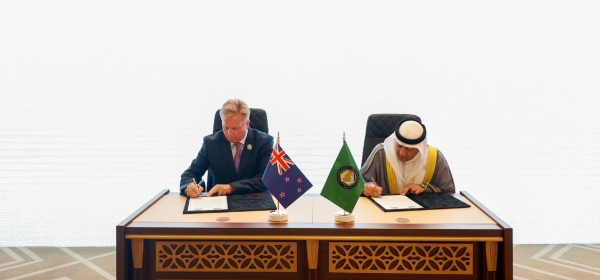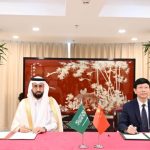The Gulf Cooperation Council (GCC) countries and New Zealand have recently signed a joint statement concluding a free-trade agreement (FTA) in an effort to enhance bilateral trade and economic cooperation. The agreement, signed in Doha, Qatar, during the 67th GCC Trade Cooperation Committee meeting, aims to eliminate trade barriers and strengthen economic ties between the two regions. Saudi Arabia’s Minister of Commerce, Dr. Majid Al-Qassabi, praised the collaborative efforts that led to the agreement, noting that it will facilitate goods and services exchange, reduce customs duties, and promote investment between the GCC and New Zealand.
The comprehensive FTA includes 19 chapters covering various aspects such as goods, sanitary and phytosanitary measures, rules of origin, customs procedures, services, investment, and e-commerce. It also addresses transparency, dispute settlement, intellectual property, and technical and economic cooperation, providing a robust framework for expanded cooperation between the GCC and New Zealand. GCC Secretary-General Jasem Albudaiwi highlighted that trade between the two regions reached $2.9 billion in 2023 and outlined a joint action plan from 2020 to 2024 that aims to foster cooperation in sectors including agriculture, food security, transportation, tourism, and training.
The signing of the FTA is expected to increase trade and investment flows between the GCC countries and New Zealand, leading to broader cooperation in key areas of mutual interest. The agreement signifies the commitment of both parties to strengthening economic ties and expanding opportunities for businesses in the region. As a promising market for Gulf products, New Zealand offers potential for growth and collaboration in various sectors, which can benefit both economies. The elimination of trade barriers and the promotion of investment through the FTA will further enhance bilateral trade and economic cooperation between the GCC and New Zealand, providing a platform for sustainable growth and development.
The agreement between the GCC countries and New Zealand is a significant milestone in the economic relations between the two regions, signaling a commitment to collaboration and partnership. By creating a framework for expanded cooperation in various sectors, the FTA sets the stage for increased trade and investment opportunities, as well as the exchange of goods and services. The comprehensive nature of the agreement, which covers a wide range of areas including rules of origin, customs procedures, services, and intellectual property, highlights the depth of the partnership and the potential for further growth and development.
The signing of the FTA reflects the strategic vision of both the GCC countries and New Zealand to strengthen economic ties and promote mutual benefits through enhanced cooperation. By reducing trade barriers and promoting investment, the agreement paves the way for increased economic activity and business opportunities between the two regions. The comprehensive nature of the FTA, which includes provisions for transparency, dispute settlement, and technical and economic cooperation, demonstrates a commitment to creating a stable and conducive environment for trade and investment to flourish.
In conclusion, the signing of the FTA between the GCC countries and New Zealand represents a significant step towards closer economic ties and increased cooperation. By eliminating trade barriers and promoting investment, the agreement opens up new opportunities for businesses in both regions to expand their presence and engage in mutually beneficial partnerships. The comprehensive nature of the agreement, covering a wide range of areas including goods, services, investment, and intellectual property, provides a solid foundation for enhanced cooperation and sustainable growth in the years to come. With the potential to increase trade and investment flows, the FTA is expected to bring about positive economic outcomes for both the GCC countries and New Zealand, further strengthening their relationship and fostering continued collaboration in key areas of mutual interest.










